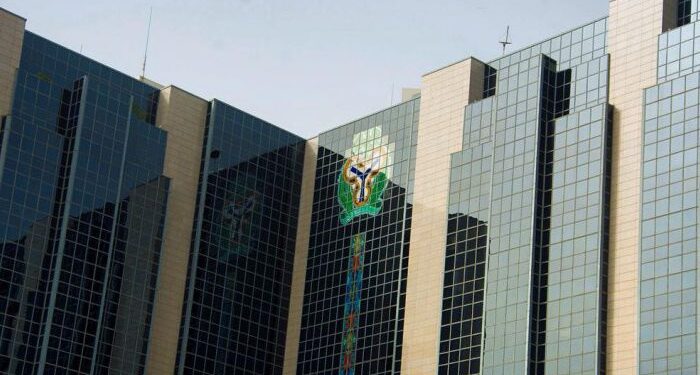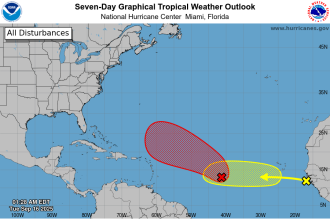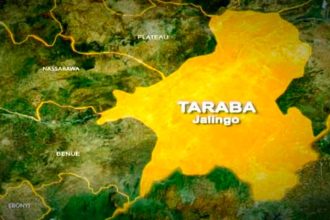Credit to Nigeria’s private sector shrank by N1.89tn in the first half of 2025 as high borrowing costs and tight liquidity pushed companies and households to cut down on debt.
Latest data from money and credit statistics published by the Central Bank of Nigeria on its website show that private-sector credit dropped from N78.02tn in December 2024 to N76.14tn in June 2025, extending the impact of a monetary policy stance that has favoured stability over credit expansion.
The decline comes as the Monetary Policy Committee has kept its benchmark interest rate unchanged throughout 2025, holding firm after a series of steep hikes in 2024 that lifted the Monetary Policy Rate to one of its highest levels in decades.
By locking rates at restrictive levels, the CBN has made new borrowing more expensive, prompting many businesses to use available cashflows to repay debt rather than take on fresh obligations.
Despite the contraction, private borrowers still take the lion’s share of credit in the economy.
In June, they accounted for 76.24 per cent of net domestic credit — N76.14tn out of N99.86tn — compared with 23.76 per cent, or N23.73tn, for the government.
This pattern has been consistent this year, with the private sector’s share rarely falling below 74 per cent, showing banks’ greater appetite for lending to companies and households than to public entities.
The month-by-month numbers show how credit dynamics have shifted in 2025. January opened with N77.38tn in private-sector loans, already lower than the December level as firms trimmed their balance sheets at the start of the year.
February saw a steeper fall to N76.26tn, down N1.12tn or 1.45 per cent, as liquidity tightened and loan rates bit deeper.
March continued the slide, albeit marginally, to N75.98tn. April brought a surprise rebound to N78.08tn, the highest this year, likely driven by seasonal working-capital needs ahead of mid-year demand cycles.
But that bounce proved short-lived, with May easing to N77.83tn before June’s sharp N1.69tn drop to N76.14tn — the steepest monthly fall so far and enough to wipe out nearly all the gains made in April.
Government borrowing has been less predictable, spiking from N25.03tn in January to N27.11tn in February as the fiscal year kicked off, then plunging to N24.59tn in March.
Borrowing slipped further to N23.93tn in April, climbed briefly to N25.08tn in May, and then retreated again to N23.73tn in June.
The combined effect of reduced lending to both sectors dragged net domestic credit from N102.90tn in May to below the N100tn mark in June — the first such drop this year — closing the month at N99.86tn.
Compared to a year earlier, the credit landscape still looks larger in absolute terms. Private-sector credit in June 2025 was N2.94tn, or 4.02 per cent, higher than the N73.19tn recorded in June 2024.
Government credit, however, was slightly down, falling by N0.20tn or 0.86 per cent from N23.93tn. Net domestic credit as a whole grew by N2.74tn, or 2.82 per cent, from N97.12tn to N99.86tn.
The sustained pressure on credit growth reflects the CBN’s determination to keep inflation in check and stabilise the naira before loosening policy.
For borrowers, this means that servicing existing loans remains expensive, and the threshold for taking new loans is higher.
The PUNCH earlier reported that businesses across Nigeria have ranked high interest rates as the most severe constraint affecting their operations in June 2025, overtaking long-standing challenges such as insecurity and poor electricity supply.
The Central Bank of Nigeria disclosed this in its June 2025 Business Expectations Survey, which polled 1,900 firms across the agriculture, services, and industrial sectors.
According to the report, high interest rates scored 75.6 on the constraint index, followed by insecurity at 75.2 and insufficient power supply at 74.3.
“Respondents identified High interest rate (75.6), Insecurity (75.2), and Insufficient power supply (74.3) as the top three business constraints in June 2025, highlighting concerns around factors that directly impact operational stability and profitability,” the CBN stated in the report.
The findings reflect increasing discomfort among business operators, many of whom are struggling with expensive credit amid tight monetary conditions.
Although insecurity and electricity shortages have remained major structural barriers to economic productivity, the sharp rise in borrowing costs appears to have compounded existing burdens, especially for small and medium-scale enterprises.
Meanwhile, the Monetary Policy Committee of the CBN retained the Monetary Policy Rate at 27.5 per cent for the third consecutive time in 2025, opting to keep all key policy parameters unchanged. The Governor of the Central Bank, Olayemi Cardoso, disclosed this at a press briefing following the conclusion of the committee’s 301st meeting held between July 21 and 22.
Cardoso said, “The Committee decided to maintain the current policy stance and hold all policy parameters constant.” He explained that the decision was taken to sustain the ongoing momentum of disinflation and to contain emerging inflationary pressures, noting that the policy stance would continue until risks to inflation had declined sufficiently.
This marks a third pause in interest rate changes following six consecutive hikes recorded in 2024.
Cardoso stated that while year-on-year inflation figures were encouraging, the uptick in monthly inflation indicated that underlying price pressures persisted, necessitating a cautious monetary policy stance.
He also pointed to the impact of global geopolitical tensions and ongoing tariff wars, which could disrupt global supply chains and drive up the cost of imports.
However, the Director-General of the Lagos Chamber of Commerce and Industry, Dr Chinyere Almona, earlier warned that retaining the MPR at 27.5 per cent translates to a significant burden on businesses.
“We must restate that the interest rate at 27.5 per cent remains a depressing burden on businesses. We therefore desire to see a reduction in the Monetary Policy Rate,” Almona said.









